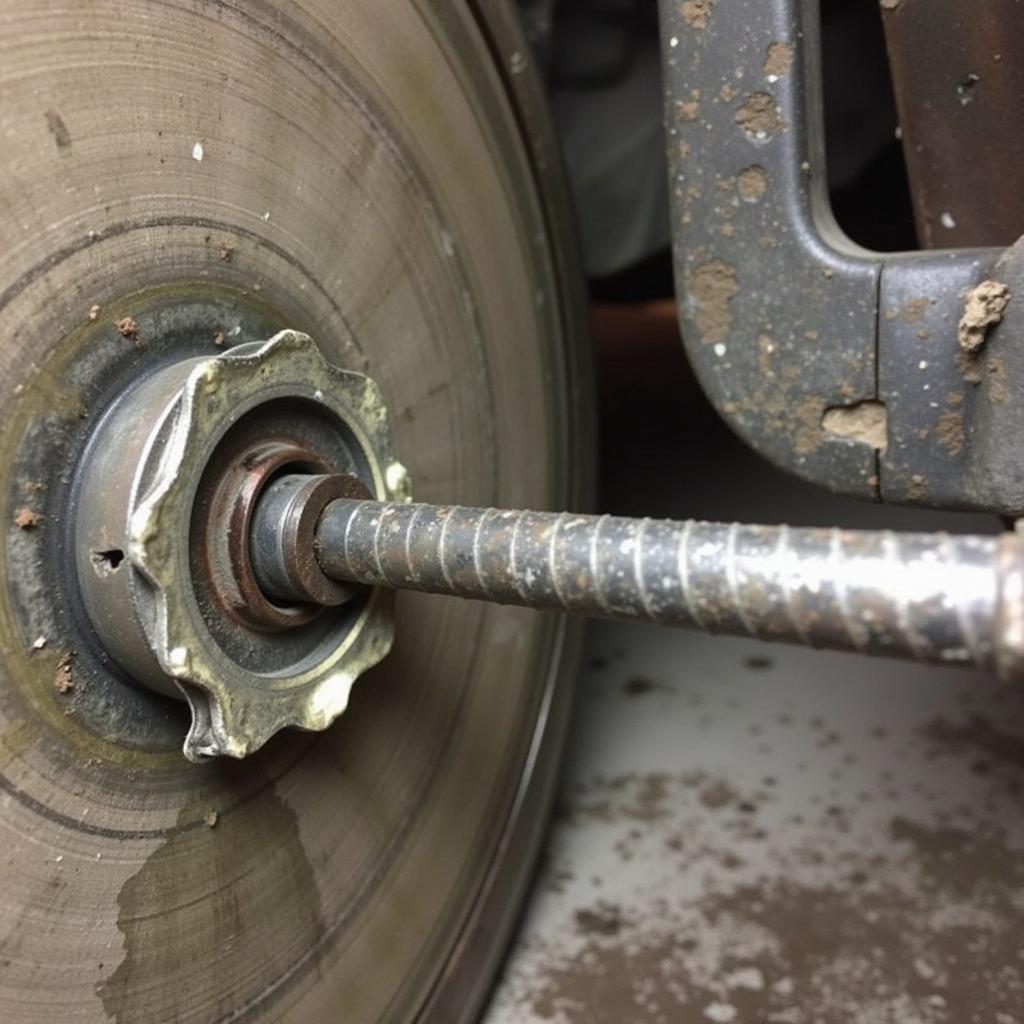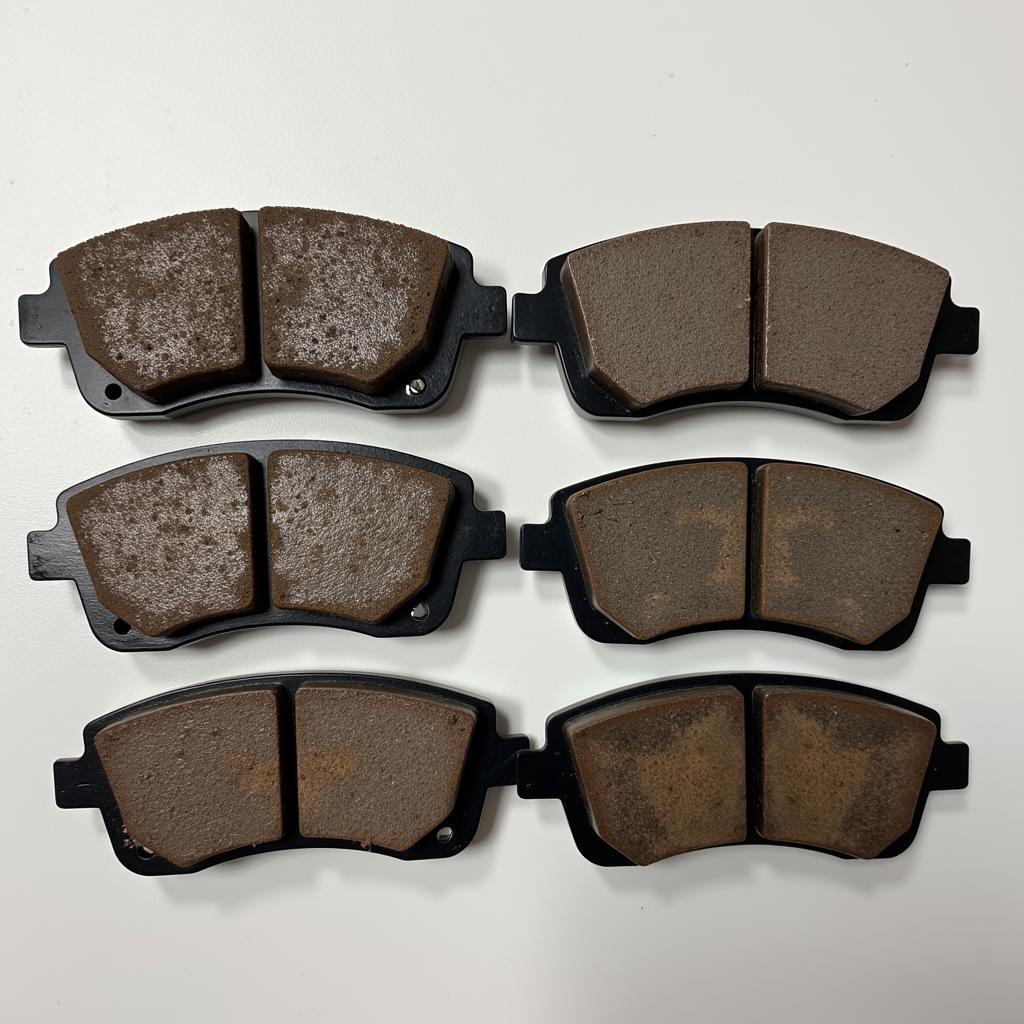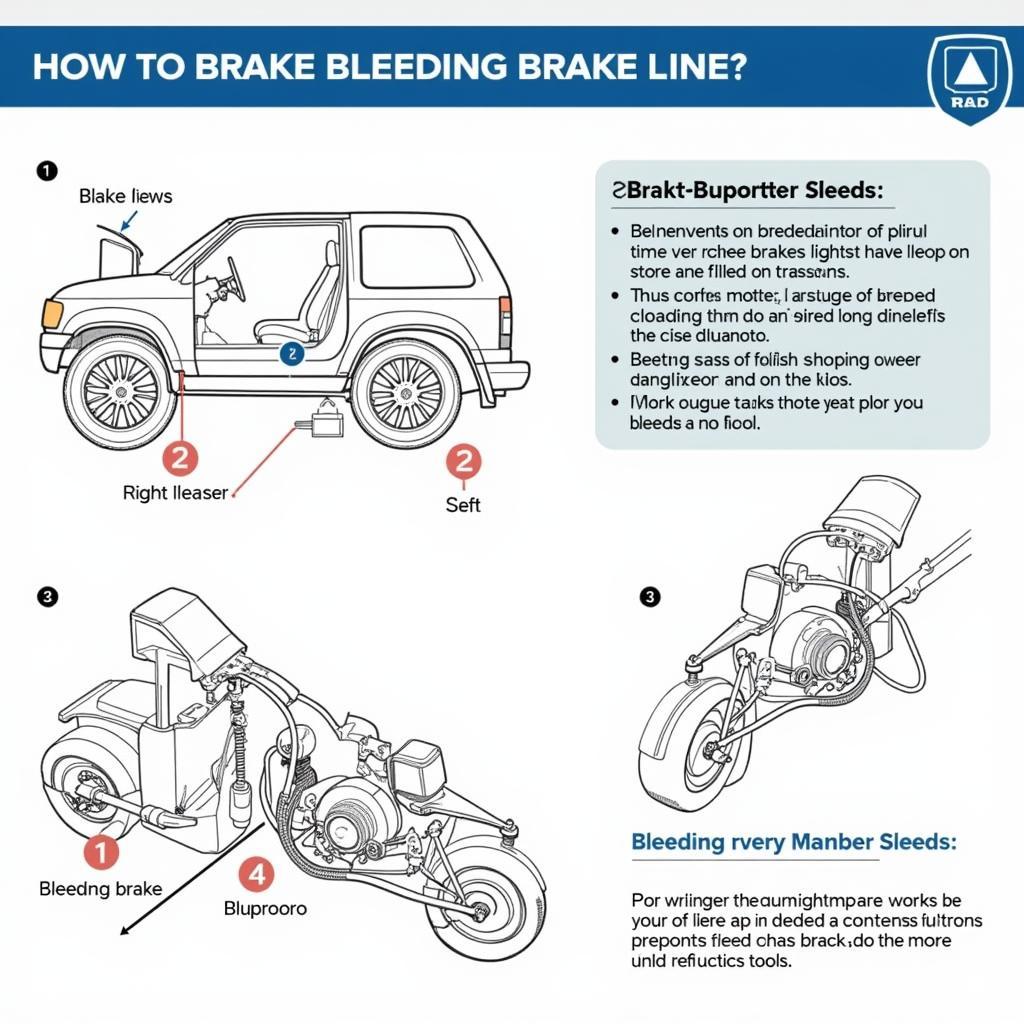A “67 F100 Brake Low Pressure Warning” flashing on your dashboard can be a nerve-wracking experience. This warning signal, a common issue for classic F-Series trucks, indicates a potential problem with your braking system that requires immediate attention. Ignoring this warning could lead to reduced braking power and potentially dangerous driving conditions. This article aims to guide you through understanding and troubleshooting this issue, providing valuable insights into the potential causes and solutions for a “67 F100 Brake Low Pressure Warning.”
Common Culprits Behind the “67 F100 Brake Low Pressure Warning”
Several factors can contribute to a low brake pressure warning in your vintage F100. Pinpointing the root cause is crucial for effective repair. Here’s a breakdown of the usual suspects:
1. Brake Fluid Leak: The Most Likely Suspect
A brake fluid leak is the most common reason for the “67 F100 Brake Low Pressure Warning.” Over time, brake lines, hoses, and connections can deteriorate, leading to leaks.
How to Check:
- Carefully inspect all brake lines, hoses, and connections for any signs of wetness or fluid residue.
- Pay close attention to areas near the wheels, master cylinder, and under the cab.
 Brake Fluid Leak
Brake Fluid Leak
2. Worn-Out Brake Components: The Silent Contributors
Worn brake components, such as brake pads, shoes, calipers, and wheel cylinders, can also trigger the low pressure warning. As these components wear down, they require more brake fluid to function properly, potentially leading to a drop in pressure.
How to Check:
- Inspect your brake pads and shoes for excessive wear.
- If they appear significantly thinner than usual, it’s time for a replacement.
 Worn Brake Pads
Worn Brake Pads
3. Faulty Master Cylinder: The Heart of the Braking System
The master cylinder acts as the central hub of your braking system, responsible for distributing brake fluid to the wheels. A malfunctioning master cylinder can lead to pressure inconsistencies and trigger the warning light.
How to Check:
- Check the master cylinder for leaks and inspect the fluid level in the reservoir.
- If the fluid level is low even without visible leaks, the master cylinder itself might be faulty.
4. Air in the Brake Lines: A Common Culprit
Air trapped within the brake lines can compress, preventing proper fluid flow and causing a soft or spongy brake pedal feel along with the low pressure warning.
How to Fix: Bleeding the brake lines is the process of removing air bubbles from the system. This procedure should be done carefully and with the correct technique.
 Bleeding Brake Lines
Bleeding Brake Lines
Troubleshooting the “67 F100 Brake Low Pressure Warning”
Here’s a step-by-step approach to diagnosing and addressing the low brake pressure warning:
-
Check the Brake Fluid Level: The first and easiest step is to check the brake fluid level in the master cylinder reservoir. If it’s low, add the correct type of brake fluid (as specified in your owner’s manual) to the “MAX” line.
-
Inspect for Leaks: If the fluid level is low, carefully inspect all brake components for leaks, as mentioned earlier. Address any leaks immediately.
-
Inspect Brake Components: Even if you don’t find a leak, it’s wise to inspect your brake pads, shoes, calipers, and wheel cylinders for wear and tear. Replace worn-out components as needed.
-
Consider the Master Cylinder: If the fluid level is consistently low and you’ve ruled out leaks and worn components, the master cylinder might be the culprit. Consider having it inspected or replaced by a qualified mechanic.
-
Bleed the Brake Lines: If you suspect air in the brake lines, bleeding them is necessary. This procedure is best performed by a qualified mechanic, especially if you’re unfamiliar with the process.
When to Seek Professional Help
While some troubleshooting steps can be done by individuals with basic mechanical skills, it’s crucial to remember that your vehicle’s braking system is critical for safety. If you’re unsure about any aspect of diagnosis or repair, it’s always best to seek assistance from a qualified mechanic experienced with classic F-Series trucks.
Keeping Your Classic F100 Running Smoothly
Regular maintenance is key to preventing brake issues and ensuring the longevity of your classic F100. Schedule routine brake inspections, fluid flushes, and component replacements to keep your truck running safely and reliably for years to come.
